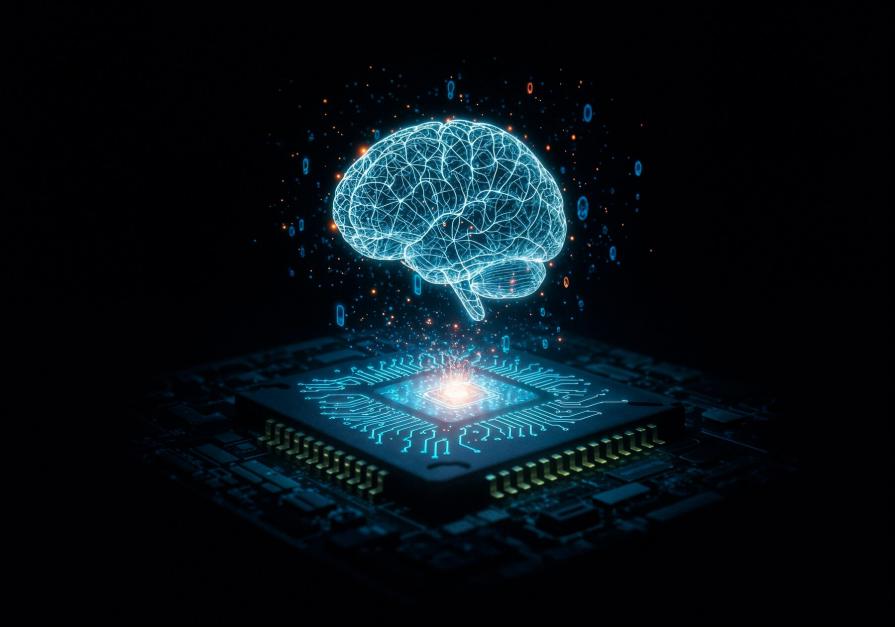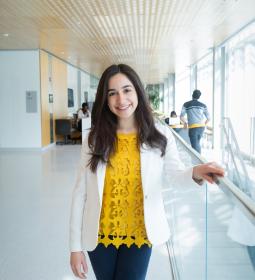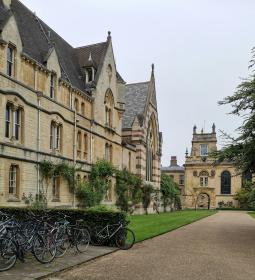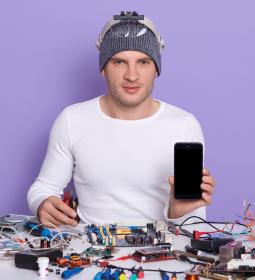At some point, this became inevitable: teachers around the world began to encounter artificial intelligence in their work. Someone is enthusiastic about exploring new tools, someone is wary, and someone is in no hurry to even figure out what's what. But one thing is for sure: ignoring AI will no longer work.
A recent survey by the Council for Digital Education, which involved more than 1,600 educators from 28 countries, found that attitudes towards AI in academia are mixed. Teachers are not afraid that they will be left without work (this fear is in a minority), but they are very worried about students. They see that they are increasingly using neural networks and less often think about what exactly the algorithms give them.
So is it a threat or an opportunity? Let's try to figure it out.
Teachers vs. AI? No, they are already working with him
First, let's dispel the myth: teachers don't sit idly by, waiting for AI to push them out of the profession. On the contrary, 61% of respondents are already using neural networks in their work. They use them not as a substitute for themselves, but rather as an assistant:
- To create educational materials (75%);
- For administrative tasks (58%);
- To prepare students to work with AI (50%);
- To check for plagiarism (28%).
But the majority is not yet ready to trust neural networks to assess student papers — only 24% admitted that they use AI in this process. This is quite understandable: students are already afraid that algorithms may evaluate them unfairly, and teachers are afraid that the quality of knowledge will inevitably suffer.
However, even those who actively use AI do so cautiously: 43% use technology moderately, and 34% only occasionally. Also there is a large group (40%) that does not resort to the help of neural networks at all. Why? It's simple: many do not have enough knowledge, time, or motivation to figure out how AI can be useful in their work.

How will the role of the teacher change? No one knows for sure
One of the most interesting parts of the study is the teachers' forecasts for the future. Only 9% are sure that their work will not change. The rest assume that there will be changes, with 18% expecting a real transformation of the profession.
But what exactly will change? Opinions differ here. 37% believe that they understand in which direction everything is moving. The rest either see only part of the changes, or cannot even imagine what awaits teachers in a few years.
Some universities are already experimenting with the introduction of AI into the educational process. For example, at the University of Tyumen, they tried to use chatbots to communicate with students. As it turned out, the students themselves did not particularly like it - they prefer to interact with live teachers. But why?
Firstly, people expect from the teacher not just an answer to a question, but involvement, mentoring, and an individual approach. Secondly, students often do not know how to correctly formulate queries for neural networks, which means that the answers turn out to be meaningless or too superficial.
It turns out that even if some of the routine tasks can be transferred to AI, the living, human role of the teacher remains irreplaceable.
The main fear: students will stop thinking
It would seem that if teachers are not afraid of losing their jobs, what are they afraid of? The answer was quite alarming: 83% believe that students do not know how to critically evaluate the generated AI content, and 82% fear that students will start relying on neural networks so much that they will forget how to learn.

Indeed, teachers have long noticed that modern students are less likely to try to understand issues on their own. A little bit - a request to ChatGPT, copy-paste to the term paper, and the job is done. Yes, now algorithms are able to generate quite decent texts, but this does not mean that the student who inserted a ready-made answer into his work understood at least something.
Some experts believe that with the advent of neural networks, the situation has only worsened. For example, there is an opinion that AI "kills" not only memory, but also imagination. When everything is already written for you, why bother?
But learning is not just memorizing information. It is a process in which effort, reflection, doubt, mistakes, and corrections are important. AI cannot (and should not) replace this pathway.
To forbid or to teach?
Despite all the misgivings, most educators understand that it is impossible to ban students from using AI. Neural networks have already become a part of life, which means that teaching how to work with them is not a whim, but a necessity.
The only question is how exactly to allow students to use AI. The opinions of teachers were divided:
- 57% believe that AI can only be used in those tasks where it is provided, and it is necessary to indicate what parts of the work are done with it;
- 38% would allow the use of AI, provided that the student honestly reports it;
- 23% want to completely ban the use of neural networks in educational tasks;
- 11%, on the contrary, are ready to make AI a mandatory tool.

One thing is obvious: a balance is needed. Teaching students to ignore AI is pointless, but allowing them to rely entirely on neural networks is also dangerous. Therefore, teachers, before demanding a conscious approach from students, must master new technologies themselves.
The problem is that so far everything is not easy with the preparing of teachers. According to the survey:
- only 20% received a complete guide to working with AI in their universities;
- only 21% know what is allowed and what is forbidden at their universities;
- Only 22% have access to educational materials within the university.
That is, teachers understand that AI is important, but often they simply do not know what to do with it.
Conclusion: Faculty Will Remain, but Their Role Will Change
If we sum up, we get a rather curious picture.
AI will not replace teachers. But it will change the way they work. Perhaps routine tasks such as checking tests or compiling lectures will become automated. But mentoring, live interaction, assistance in critical comprehension of information - this will remain with people.
Yes, teachers will have to adapt. You will have to learn how to use AI, understand its strengths and weaknesses, and explain to students when the algorithm is really useful and when it only gets in the way.
AI is not a threat, but it is not a universal salvation either. This is a tool, and it depends on how you use it whether it will benefit or harm. Now, it seems, it is teachers who should teach students not just to copy answers from neural networks, but to really work with this new world.










